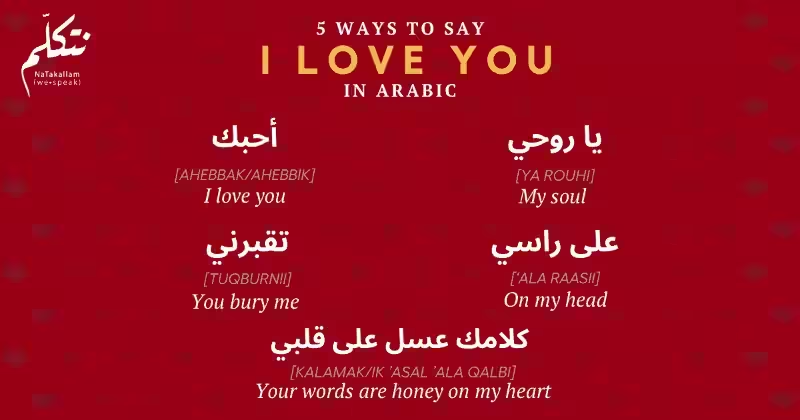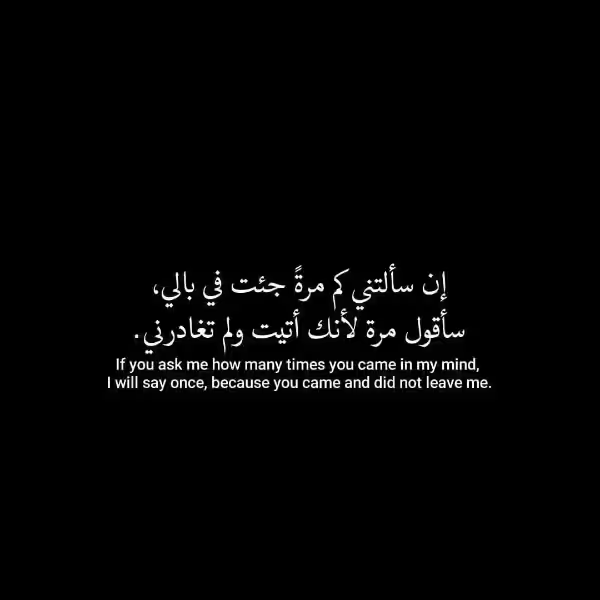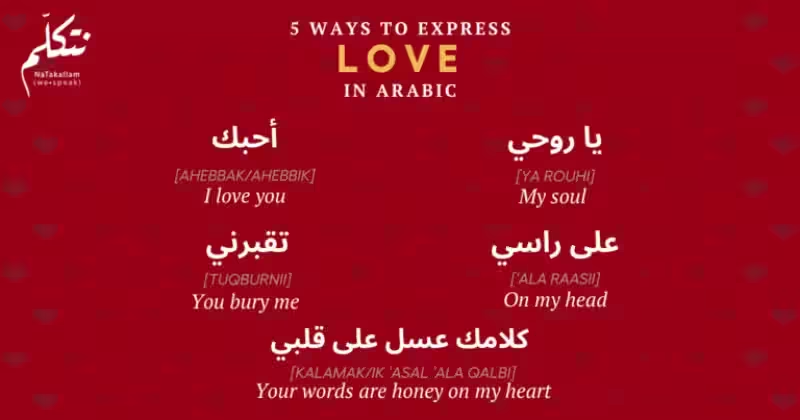
Learning to express affection in a new language is a beautiful journey. In the intricate tapestry of the Arabic language, expressing “I love you” is more than just a translation; it’s a nuanced art form. This exploration delves into the various ways to convey this sentiment, considering context, relationships, and cultural nuances. Ultimately, mastering the expression of love in Arabic requires understanding the depth and richness of the language, not just its literal interpretations.
Understanding the Nuances of Arabic Love
Arabic, like any language, doesn’t have a single, universally applicable translation for “I love you.” The appropriate expression depends heavily on the relationship and the specific context. A casual expression of fondness between friends differs significantly from a declaration of romantic love. Direct translations can sometimes sound inappropriate or even offensive in certain contexts. This nuance is crucial, and failing to understand it can lead to miscommunication and potentially awkward situations.
This understanding requires a grasp of the cultural context within which Arabic is spoken. Different dialects and regions within the Arab world might have varying customs and expectations regarding romantic expressions. Learning about these nuances will help you avoid misunderstandings and speak Arabic with greater cultural sensitivity.
Exploring the Different Ways to say “I Love You” in Arabic
While “I love you” in English is a straightforward statement, its Arabic counterpart is more nuanced. Here are some common ways to express love, categorized by context and intensity:
Formal Expressions of Affection
-
أحبك (ʔaḥibbuka): This is the most common and widely understood way to say “I love you” to a man. It’s a straightforward declaration.
-
أحبكِ (ʔaḥibbuki): The feminine form of the above expression, used when addressing a woman.
These expressions are appropriate in formal settings and for expressing affection within platonic or more distant relationships. However, their directness might not convey the same emotional depth as more nuanced expressions.
Expressions of Deep Affection
-
على راسي (ʿalā rāsī): This translates literally to “on my head,” but it signifies a commitment, a willingness to do anything for the beloved. It implies complete devotion and a willingness to prioritize their needs.
-
يا روحي (yā rūḥī): Meaning “my soul” or “my life,” this expression evokes a deep emotional connection. It’s a term of endearment, expressing profound love and care. It is particularly intimate and indicative of a strong bond.
These expressions suggest a higher level of intimacy and emotional depth compared to the more formal expressions.
Expressing Appreciation for Words
- كلامك عسل على قلبي (kalāmuk ʿasal ʿalā qalbi): This translates to “Your words are honey to my heart.” It highlights the appreciation for the beloved’s words and the positive impact they have on the speaker. This expression is excellent for showing gratitude for thoughtful gestures, compliments, or kind words.
This emphasizes appreciation and emotional connection through the power of the beloved’s words.
Intense Expressions of Deep Love
- تقبرني (tuqburnī): This translates directly to “You bury me” and represents a strong, almost dramatic, expression of love. It conveys an almost sacrificial sentiment—the speaker would prefer death to losing the beloved. This is a very intimate expression best reserved for those with a deep and established relationship.
This is a dramatic expression best used in very intimate contexts.
The Importance of Context and Cultural Nuances
The appropriate expression for “I love you” in Arabic varies significantly with the context and the relationship. A casual “I love you” to a friend will be different from a heartfelt declaration of love to a romantic partner. Observing and understanding the social and cultural norms of the situation is crucial to avoid misinterpretations.
For instance, in some Arab cultures, expressing love publicly might be considered inappropriate. Therefore, knowing your audience and respecting their cultural norms will enable more constructive communication.
Learning Beyond the Words
Beyond the spoken words, body language and other nonverbal cues play a vital role in conveying love in Arabic. Consider the tone of voice, the level of eye contact, and the overall atmosphere. These elements contribute significantly to the overall message and ensure effective communication.
Resources for Further Learning
The Dive into Anything community forum, dedicated to learning Arabic, offers a valuable platform for learners from different proficiency levels. The forum’s active members, readily available online, provide a supportive environment for questions, feedback, and interaction. Learning from other learners and experiencing different dialects firsthand creates a vibrant and dynamic learning experience.
Learning to express “I love you” in Arabic is an enriching journey. It’s not just about finding the right words; it’s about understanding the cultural and relational context. This approach ensures that your expressions of love are both meaningful and respectful, reflecting the profound richness of the Arabic language and the cultural tapestry it embodies. Ultimately, mastering any language goes beyond mere translation; it’s about embodying the heart of the culture itself.
Frequently Asked Questions about Saying “I Love You” in Arabic
How many ways are there to say “I love you” in Arabic?
There isn’t one single way to express “I love you” in Arabic. Like in any language, the best way to express love depends on the context, the relationship, and the level of affection. The provided text highlights several different ways, ranging from common expressions to more poetic and nuanced options.
What is the most common way to say “I love you” in Standard Arabic?
The most common way to say “I love you” in Standard Arabic is “أحبك” (ʔaḥibbuka) for a male and “أحبكِ” (ʔaḥibbuki) for a female. However, remember that context matters, and there are other ways to express love depending on the situation.
Are there other ways to express love besides the literal translation?
Yes, the text explains that love in Arabic often goes beyond a literal translation. Expressions like “على راسي” (ʿalā rāsī), meaning “on my head,” indicate dedication and willingness to do anything for the beloved. Other options include “يا روحي” (yā rūḥī), meaning “my soul/my life,” which shows affection and care. There are also more poetic expressions like “كلامك عسل على قلبي” (kalāmuk ʿasal ʿalā qalbi), meaning “Your words are honey to my heart,” which focuses on the value of the beloved’s words.
How does the context affect the expression of love in Arabic?
The context is crucial. Saying “I love you” to a friend will be different from saying it to a romantic partner. Cultural norms and social expectations also greatly influence the appropriate way to express love. The suggested text emphasizes that careful consideration of context, relationship, and cultural nuances are essential for effective communication.
Are there regional variations in how “I love you” is expressed?
Yes, regional variations in dialects and cultures within the Arab world will likely affect the best way to express love. The text implies that dialects might have different, but equally valid, ways of expressing affection.
What about the use of metaphors and emotional nuances?
The article suggests that expressing love in Arabic often includes metaphors and emotional nuances. “Tuqburnii” (تقبرني), a more dramatic way of saying “You bury me,” conveys a deep and profound love, even to the point of preferring death over losing the beloved. These expressions, going beyond the literal, deepen the emotional connection.
Is there a single definitive answer to “How do you say I love you in Arabic”?
No, there isn’t. The best way to express love in Arabic depends on the specific context and relationship. The provided information highlights the variety of ways to express affection, emphasizing the richness and complexity of the language.








